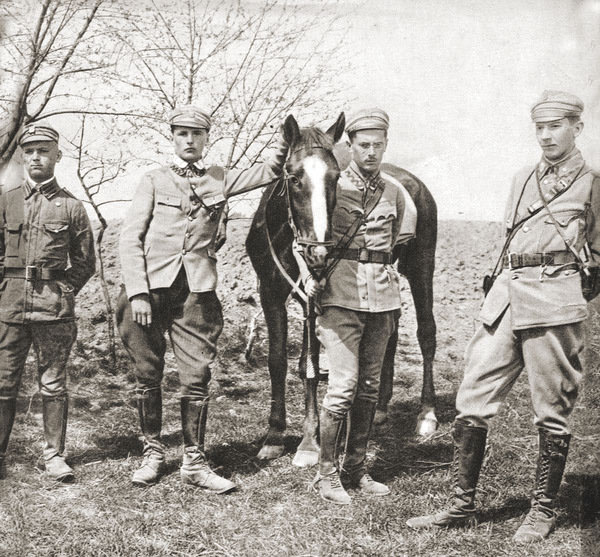OPINIONS
Date: 12 October 2022 Author: Dawid Krupa
Stefan “Grot” Rowecki: A Betrayed General
Stefan Rowecki, codename “Grot” (Spearhead) was born on December 25, 1895 in Piotrkow Trybunalski, Poland. In his hometown he graduated from a middle school and founded one of Poland’s first scouting organizations. He enrolled at the Faculty of Electrical Engineering at the Wawelberg and Rotwand Engineering School in Warsaw, Poland. In 1913 he joined the Polish Rifle Squads, where he went by the nom de guerre Radecki. He was appointed non-commissioned officer and chief of the Warsaw branch of the Rifle Squads.

As soon as World War I broke out, Rowecki was conscripted into the 1st and 5th Infantry Regiment of the Polish Legions. He was wounded while fighting in a battle and later promoted to the rank of lieutenant. During the Oath crisis, he was sent to the internment camp in Beniaminow. Once Poland regained its independence, Rowecki lectured at a fortification and sapper course and pursued studies at the War College. He was promoted to the rank of captain. Rowecki then was chief of the First Division of the High Command. He fought in the Polish-Soviet war of 1920 and served as the chief of the 2nd Division of the Southeast Front Command and then also the strike force, where he sided with General Edward Rydz-Śmigły.
After Poland defeated the Soviet army, Rowecki became chief of the Science and Publishing Institute of the Polish Army. He was a co-founder of Przegląd Wojskowy (“Military Review”), a military weekly. In 1930 he was appointed chief of the 55th Infantry Regiment in Leszno. In early 1936 he commanded the Brigade of “Podolia” Border Protection Corps. Two years later he served as deputy commander of the 2nd Legions Infantry Division in Kielce. In June 1939, he began organizing the Warsaw Armoured Motorized Brigade.
After Germany invaded Poland in September 1939, Rowecki’s brigade fought near the central Vistula and the eastern Polish city of Lublin. Once Poland surrendered, Rowecki made his way to Warsaw where he became chief of staff and deputy commander of the Service for Poland’s Victory, a Polish resistance movement. He was promoted to brigadier general. On June 30, 1940, Rowecki became chief of the Union of Armed Struggle. He was a co-founder of Operation N, a psychological-warfare department that carried out sabotage and propaganda missions targeting the Nazi occupier. In 1941, Rowecki founded Wachlarz, a Polish resistance organization that dealt with sabotage duties.
His major accomplishment was to establish the Home Army whose chief he became in February 1942. The Home Army absorbed most of Poland’s major clandestine forces. In December 1942 Rowecki was appointed defense minister at the Government Delegation for Poland. Once greenlighted for armed struggle, he began plotting a nationwide uprising against the occupier. He turned down any alliances with the Communists.
His job and skills made him a number one target for the Gestapo. A special cell was established to capture Rowecki who eventually was arrested in an apartment at 14/10 Spiska Street due to his betrayal by Ludwik Kalkstein, Eugeniusz Swierczewski, and Blanka Kaczorowska, who all were Gestapo agents. He was transported to Berlin and offered an alliance with the Nazis that he turned down. In July 1943 he was detained in a concentration camp in Sachsenhausen, where he was placed among other prominent prisoners. After the Warsaw Uprising broke out, Rowecki was executed on the personal order of Nazi SS leader Heinrich Himmler. An investigation pursued by Poland’s Institute for National Remembrance found that Rowecki was executed somewhere between August 2 and 7, 1944. The exact circumstances of his death and his place of burial remain unknown.
Support Us
If content prepared by Warsaw Institute team is useful for you, please support our actions. Donations from private persons are necessary for the continuation of our mission.
All texts published by the Warsaw Institute Foundation may be disseminated on the condition that their origin is credited. Images may not be used without permission.















